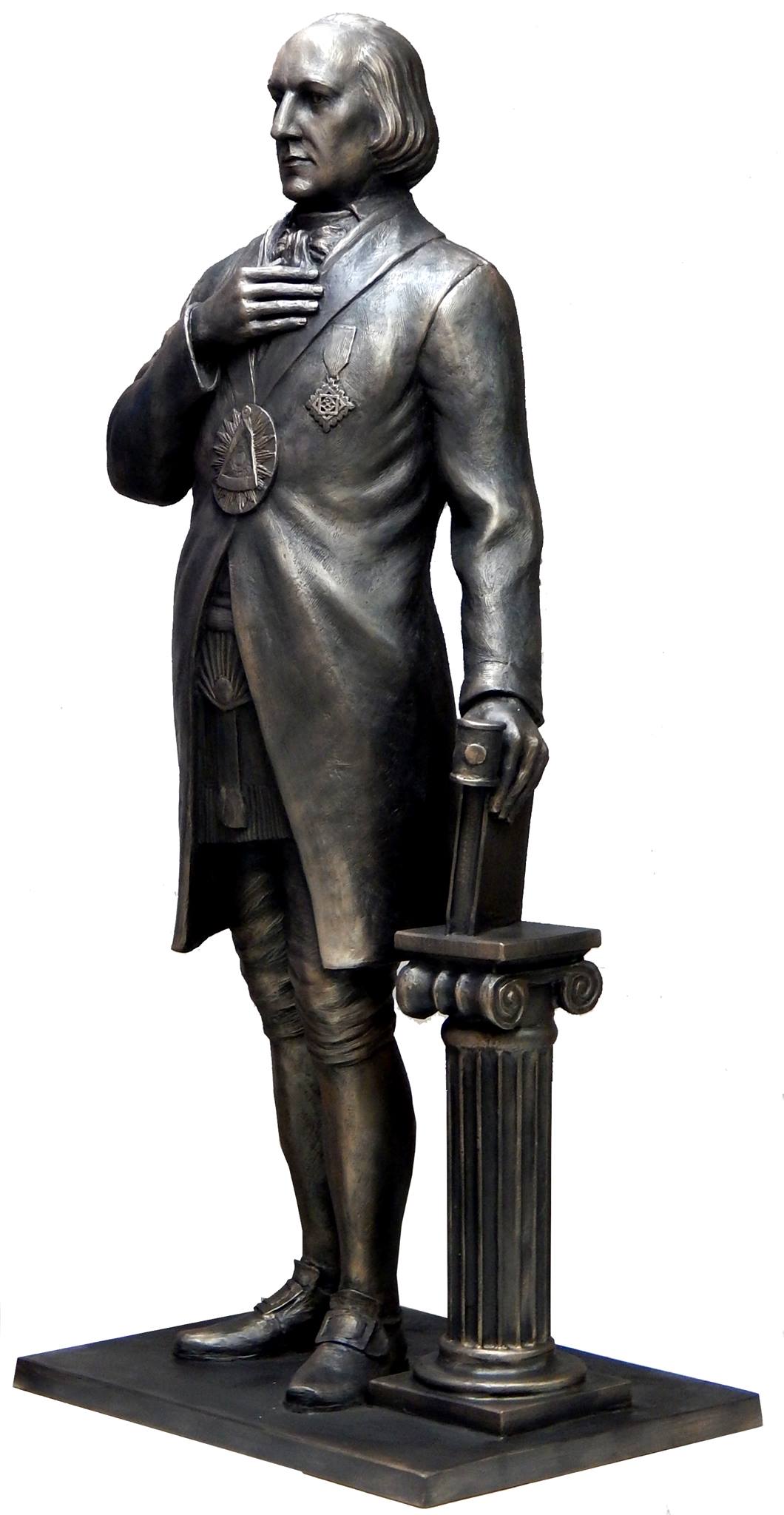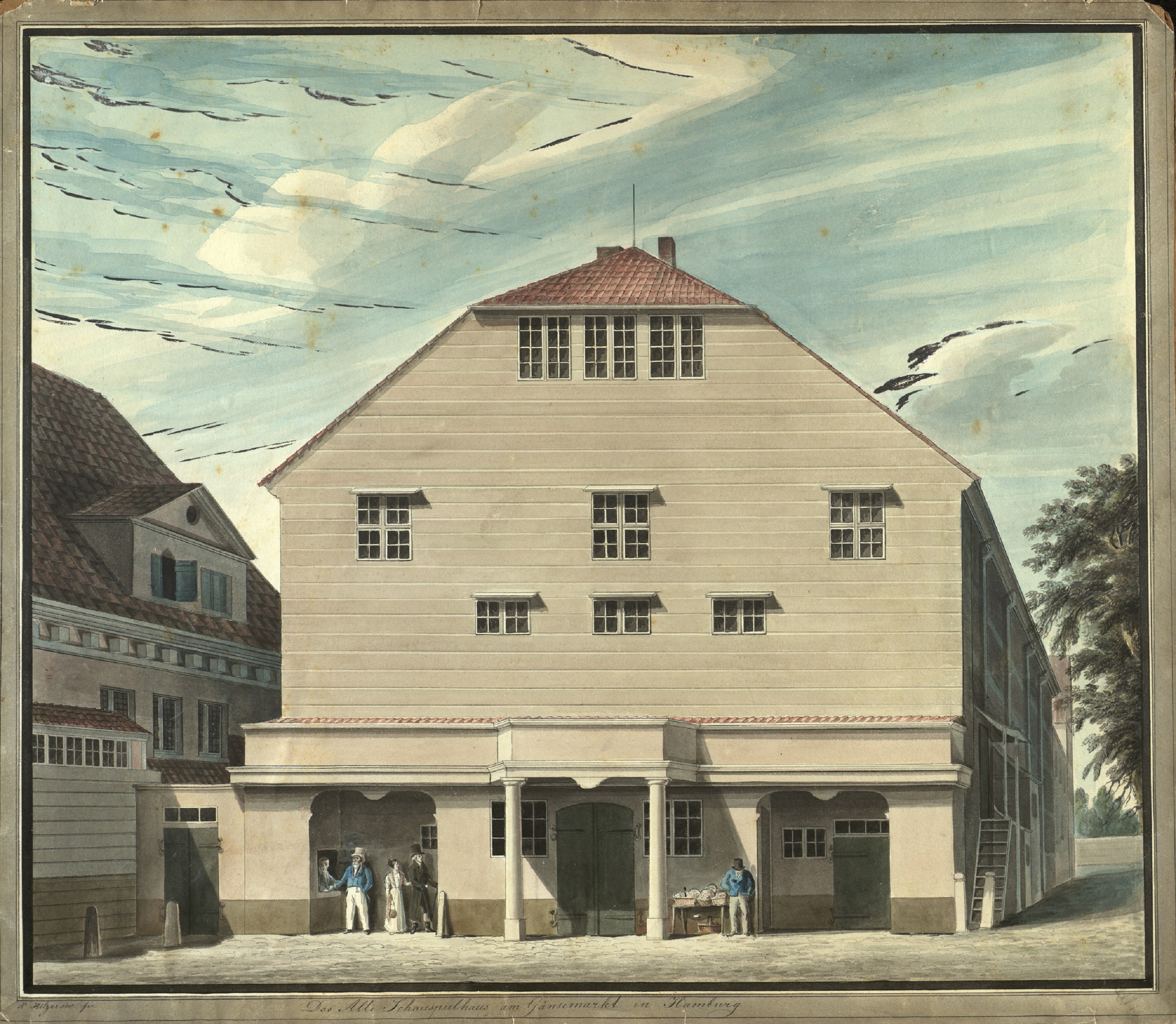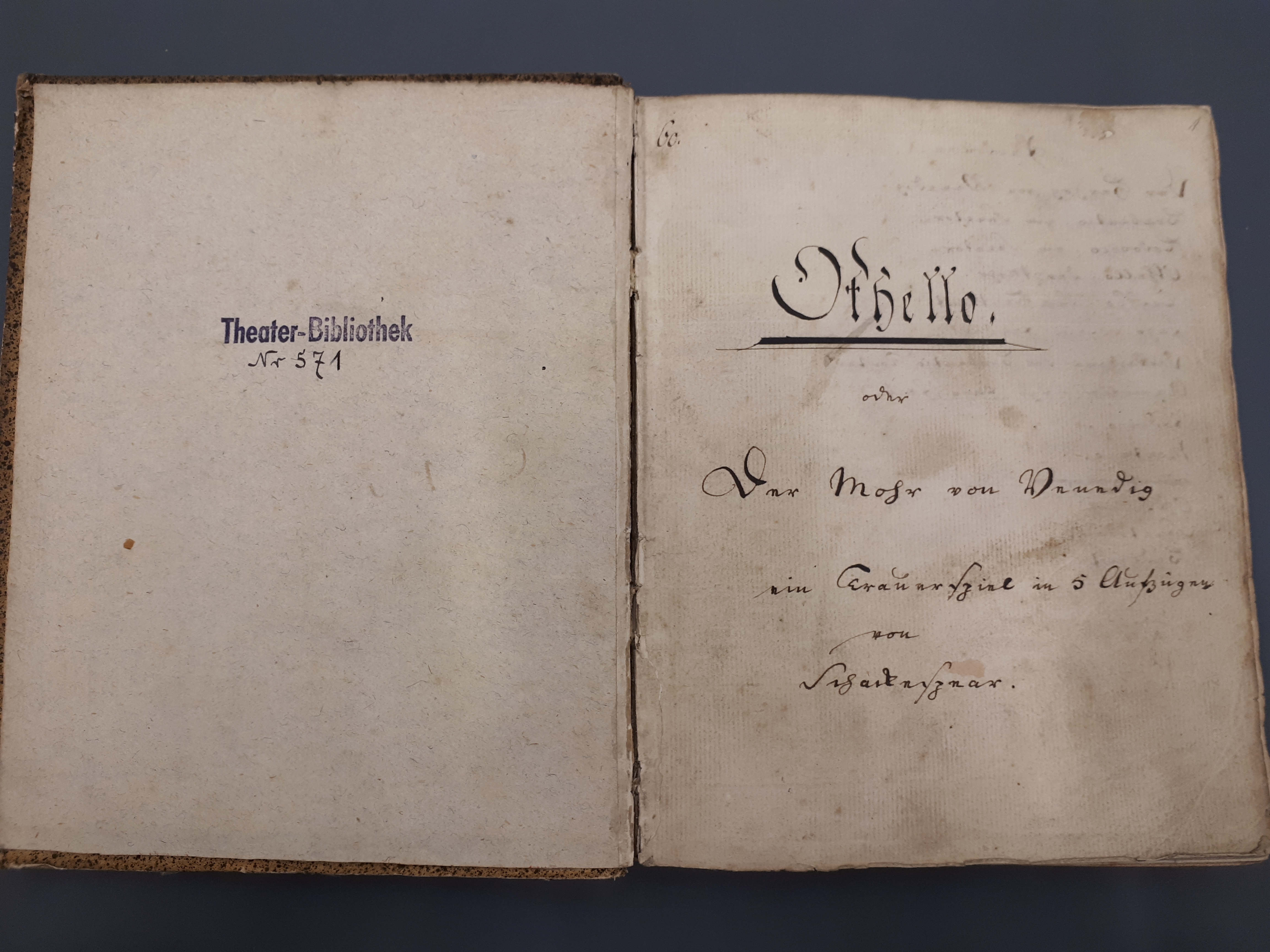Traces of a Scandal
The Prompt Book of Friedrich Ludwig Schröder’s 1776 Adaptation of Shakespeare’s Othello
Martin-Jörg Schäfer
Lesen Sie hier die deutsche Version dieses Texts.

SUB Hamburg
Theater-Bibliothek: 571 is a so-called “prompt book”. It was created and used for a production of Shakespeare’s Othello at Hamburg Stadt-Theater (then based at Gänsemarkt) on 26 November 1776 – and for three subsequent performances in the next seven days. The prompter silently read the manuscript during performances, intervening if the actors missed their cues or forgot their lines. A prompt book also served as a zealously guarded master copy of the version of the play performed by the company, the actors only having a binder with their parts and the respective cues.
The Othello prompt book is intimately tied to the most notorious theatre scandal in the German-speaking world. The first performance saw many members of the audience leave the packed theatre in outrage, and urban legend has it that the increasingly intense scenes of jealousy, intrigue, and then murder on the stage caused a number of women in the audience to faint, and there is even talk of miscarriages. The second performance of the play was so poorly attended that the famous theatre director Friedrich Ludwig Schröder felt compelled to make radical revisions to the play. Theater-Bibliothek: 571 bears testimony to his attempts to rescue a failing production.

SUB Hamburg
Schröder had had a stunning success a few months earlier with an adaptation of Hamlet, thus initiating a lasting fascination with the play in Germany. However, Schröder had changed the plot of the play in line with the conventions of the time, with the play receiving a happy ending and Hamlet becoming an energetic hero. With Othello, Schröder wanted to familiarise his audience with Shakespeare further, but his audience expected more of the same. Schröder had already toned down Othello’s grizzly murder of the innocent Desdemona from a sexually charged strangulation to a more basic stabbing. But the terrible deed itself remained and triggered the public outcry. Schröder had to come up with a new ending, which then had to be integrated into the clean copy of the Othello prompt book. Even when major changes were made to a production, theatre companies would seldom create a new prompt book due to time and financial constraints, and it was much more efficient simply to update existing books.
Inspired by a contemporary simplification of Othello by C.H. Schmid, Schröder had already streamlined the existing translation by C.M. Wieland in his original adaptation. After the audience’s negative reaction, Schröder then turned to an even freer adaptation by one J.H. Steffens. Schröder wanted to build on his earlier success with Hamlet, but not to abandon fealty to Shakespeare altogether this time around: Desdemona was saved, but the mortified Othello still committed suicide at the end. Schröder’s own hand and that of the original scribe crossed out retracted text and inserted additions preparing the different turn of events into blank spaces, margins, or onto empty pages. For more complex changes, they glued inserts over the older text. A new scene where Desdemona’s chambermaid has a foreboding of evil is added on the empty page at the end of Act IV. However, in the middle of Act V, the omission of the murder itself is as unobtrusive an affair as can be: the words “He stabs her” are crossed out with a few sober strokes.

SUB Hamburg
Then, for the last four scenes, the revisions suddenly stop. Since equipping the actors with their updated lines was the most pressing matter at hand, the Steffens-based ending, which we know about from theatre history, was probably transcribed on extra sheets for the prompter. As was common practice, these might have then been loosely placed in the Othello prompt book and then lost later. Afterwards, there might have been little need to finish the reshaping of Theater-Bibliothek: 571. While Schröder’s Hamlet continued to dazzle audiences for decades to come, the Othello production was retired after two performances of the revised version in the following week. All of Schröder’s efforts had been to no avail. Besides the sensational tales passed down through theatre history, the prompt book Theater-Bibliothek: 571 is all that remains from this epitome of a theatre scandal.

